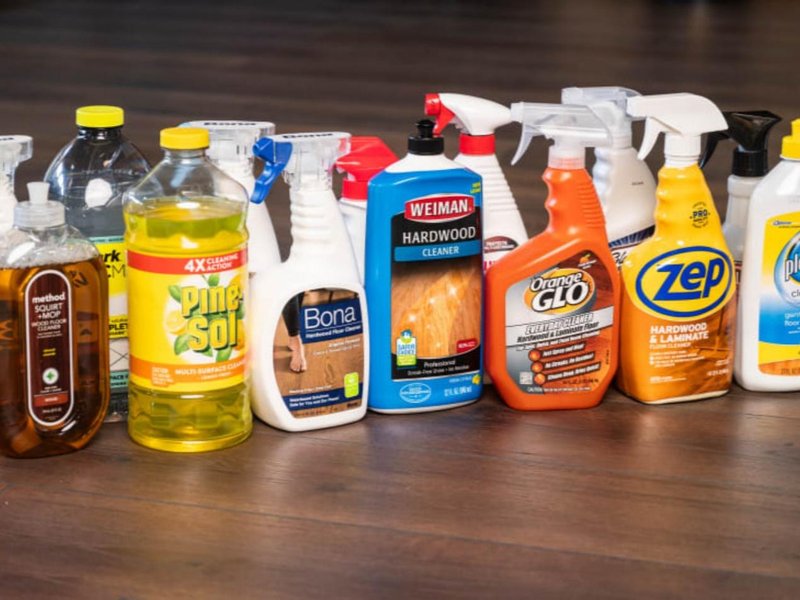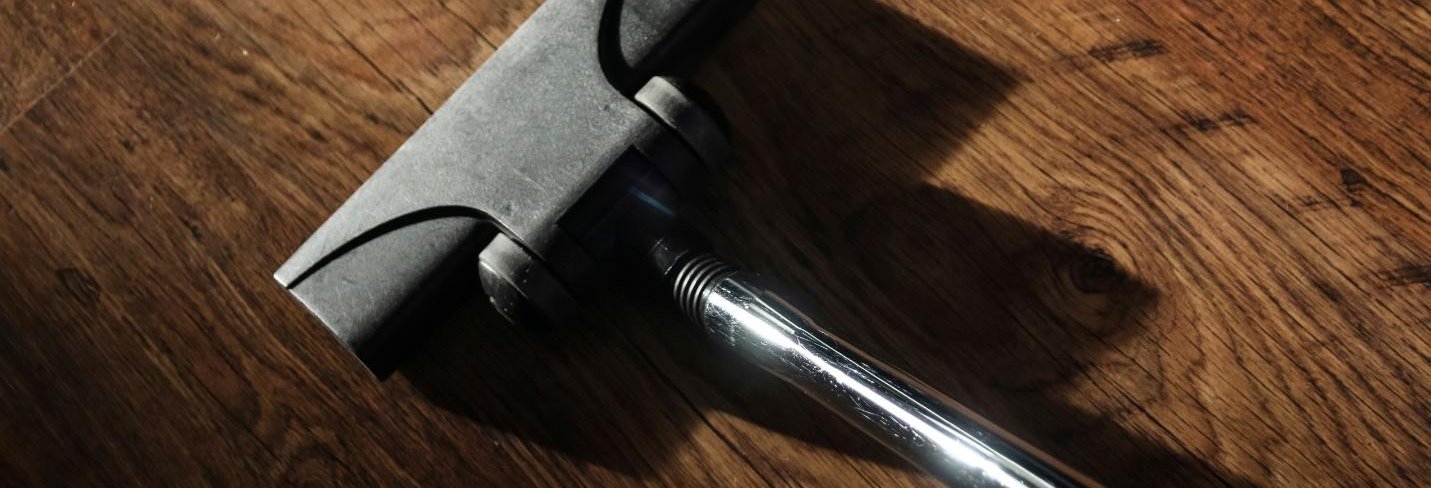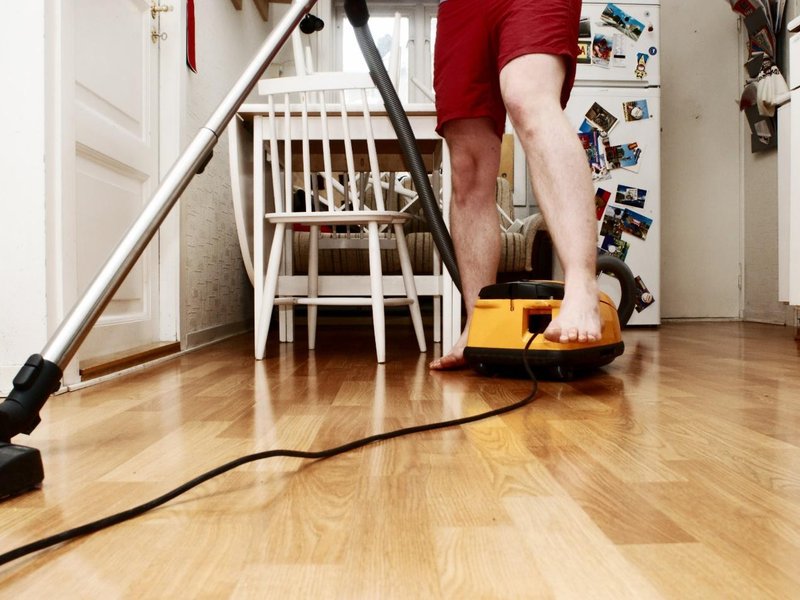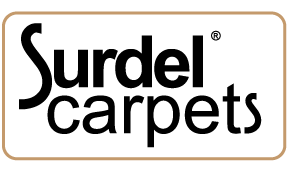Owning hardwood floors comes with a major cleaning responsibility. Unlike other floor types, hardwood is extremely sensitive to wear and tear. Fortunately, this wear and tear can be easily avoided by investing time in a cleaning schedule.
However, many homeowners may be lost on how to clean hardwood floors. With this guide, we break it down for you so that you can adequately preserve the quality of your flooring. Keep reading to learn exactly what you need for a successful cleaning process.
The Importance of Cleaning Hardwood Floors
It’s no secret that a hardwood flooring installation is quite an investment. As such, you’ll want to make sure that your flooring is always in tip-top shape. While preventing accidental damage can be tough to manage, cleaning your floors on a regular basis is a step that any homeowner can take to protect their hardwood. Here are three reasons why you should stay on top of cleaning your floors:
1. Improves the Lifespan of Your Hardwood Flooring
Without frequent cleaning, the lifespan of your floor will begin to suffer. Over time, built-up grime and dirt can easily degrade your flooring making it look worn and damaged. By taking action and cleaning your hardwood regularly, you’ll be able to prevent any lasting damage from occurring and prevent floor repairs in the future.
2. Keeps Your Floor Looking New
Besides maintaining your flooring’s lifespan, staying on top of cleaning will help it keep its original shine. Frequent foot traffic can easily cause areas of your floor to appear worn, but by staying on top of cleaning and polishing you’ll be able to keep it in perfect shape for years ahead.
3. Protects Your Investment
Above all else, keeping up on cleaning will safeguard the expensive investment you made in your home. If it ever comes time to sell, you’ll be thankful you took proper care of your flooring as it will help to maintain your home’s value on the market.
How to Clean Hardwood Floors
As a homeowner, you may be wondering what the best way to clean hardwood floors is. Luckily, there’s an easy-to-follow approach that can be universally applied across all hardwood flooring types.
All you’ll need is the proper cleaning supplies, the right chemicals, and a little bit of elbow grease to keep your floors looking brand new. Let’s look at everything you’ll need and the step-by-step process for tackling this job.

The Supplies You'll Need
Nearly every product you’ll need to clean your floors can be purchased at a typical department store. All the materials are readily available and affordable, making your cleaning job that much easier. In general, you’ll need:
A Soft Bristle Broom or Vacuum
Microfiber Mop
Water and a Bucket
Hardwood Flooring Cleaner
Dry, Microfiber Cloths
Finishing Polish
Step 1: Remove All Surface Dirt and Dust
Before you begin deep cleaning, be sure to remove all the surface dust that’s laying on top of your flooring. Using a gentle broom or vacuum with a hardwood flooring attachment, sweep and suck up all loose bits of grime.
If the cracks of your hardwood contain lots of dirt, consider scraping this out with a putty knife before sweeping or vacuuming your floor.
Source: This Old House
Step 2: Prepare Your Cleaning Solution
In a large mop bucket, mix warm water and your chosen cleaning agent. What can I clean hardwood floors with? Choose a nonabrasive chemical intended for hardwood floors or use dish soap. In no circumstances should you ever use white vinegar, as it’s too harsh for hardwood.
Step 3: Mop with Your Chosen Chemicals
Once the solution is mixed, thoroughly mop your flooring in a circular pattern, moving backward. Be sure to drain your mop of any excess water before proceeding, as you don’t want puddles of soapy water building up.
Step 4: Mop Again with Only Water
After adequately mopping with your solution, mop again – this time with just water. This will help remove any of the extra cleaning agents that were left behind.
Step 5: Dry Thoroughly
Allow your hardwood to air dry until you can no longer see large amounts of water. At this point, take a dry, microfiber cloth that won’t scratch and dry the rest of the floor in circular motions. This ensures a streak-free finish.
Step 6: Apply Wood Floor Polish for a Clean Finish
To complete the job, finish by wiping down with a wood floor polish to preserve your flooring’s natural shine.

How Often Should You Clean Your Hardwood Floors?
Wondering how to clean a hardwood floor? According to most experts like Bona, as often as possible. By taking on a regimented cleaning routine, you’ll be able to preserve the original luster and shine that your hardwood had straight from the manufacturer.
In general, you can break your cleaning process into two intervals:
- Regular
- Deep Cleaning
Regular Cleaning
Regular cleaning is completed at pre-designated time periods. The key to regular cleaning is sticking to the schedule so that your flooring will always look the best it can. With regular cleaning, there are certain tasks that should be completed at different times. Let’s check those out.
Daily
Although it may seem tough to keep up on, daily sweeping or vacuuming will go a long way to preserving the health of your hardwood floors. It also makes later cleaning projects much easier.
Weekly
At least once a week, you should be mopping areas of your home that receive a lot of use. This will prevent excess crud from building up, and it will also maintain the hardwood’s coating.
Monthly
For areas of your home that aren’t trafficked as much, mop once a month. During this time, you can also apply hardwood polish to keep the shine in perfect condition.
Deep Cleaning
Wondering how to deep clean hardwood floors? Deep cleaning involves a thorough inspection of your hardwood floor and more intense cleaning regimens. If your hardwood receives an exceptional amount of use, you may want to consider periodic deep cleaning. Deep cleaning is a great time to apply hardwood wax on areas of your home that may appear worn. It’s also a fantastic opportunity to fill in any gouges your flooring may have suffered from.
Step 1: Remove All Surface Dirt and Dust
Before you begin deep cleaning, be sure to remove all the surface dust that’s laying on top of your flooring. Using a gentle broom or vacuum with a hardwood flooring attachment, sweep and suck up all loose bits of grime.
If the cracks of your hardwood contain lots of dirt, consider gently scraping this out with a putty knife before sweeping or vacuuming your floor.
Source: This Old House
Step 2: Prepare Your Cleaning Solution
In a large mop bucket, mix warm water and your chosen cleaning agent. Choose a nonabrasive cleaner intended for hardwood floors or use dish soap. In no circumstances should you ever use white vinegar, as it’s too harsh for hardwood.
Step 3: Mop with Your Chosen Cleaner
Once the solution is mixed, using a damp, not wet mop, thoroughly mop your flooring in a circular pattern, moving backward. Be sure to drain your mop of any excess water before proceeding, as you don’t want puddles of soapy water building up.
Step 4: Mop Again with Only Water
After adequately mopping with your solution, mop again, with a damp - not wet - mop, this time with just water. This will help remove any of the extra cleaning agents that were left behind.
Step 5: Dry Thoroughly
Allow your hardwood to air dry until you can no longer see any pools of water. At this point, take a dry microfiber cloth that won’t scratch and dry the rest of the floor in circular motions. This ensures a streak-free finish.
Step 6: Apply Wood Floor Polish for a Clean Finish
To complete the job, finish by wiping down with a wood floor polish to preserve your flooring’s natural shine. Deep cleaning is a great time to apply hardwood wax on areas of your home that may appear worn. It’s also a fantastic opportunity to fill in any gouges your flooring may have suffered from.
FAQs About Cleaning Hardwood Floors
The most effective way to clean the cracks and gaps in your hardwood flooring is with a vacuum cleaner. Be sure to use a vacuum with an attachment that will adequately suck up all the dirt and grime. If grime is particularly solid, use a putty knife to scrape it up beforehand.
When cleaning your hardwood, be sure to use non-abrasive and gentle cleaning tools. Additionally, ensure that you’re using soft bristled brushes on your brooms and vacuum cleaner. When it comes to chemicals, be sure to specifically pick hardwood floor cleaners that have a neutral pH level of around 7.
Despite white vinegar and baking soda appearing like a natural cleaning remedy, they can easily cause damage to your hardwood. Too strong of a solution can dull the polyurethane coating, so always opt for dedicated hardwood cleaners. Never steam clean your flooring, as the excessive moisture can severely damage it.
Yes. Dish soap is a mild cleaning solution that can be safely used to clean hardwood floors. For best results, mix ¼ cup of dish soap into a bucket of warm water. After mopping with Dawn, mop again with just water to remove the excess soap. Finally, thoroughly dry with a soft washcloth for a streak-free shine. If you’re concerned about not voiding your specific warranty, please check with to verify your warranty won’t be voided when using these methods.
Abrasive tools and chemicals are guaranteed to damage your hardwood. If vacuuming, be sure to turn off the bristle brush. While this attachment is fantastic for cleaning carpets and other thick surfaces, it will easily scratch your hardwood flooring. Along these lines, also avoid harsh brooms that are intended for more durable surfaces like kitchen tile.
Yes, it is 100% safe to mop your hardwood flooring with water, so long as you adequately ring it out before use. If you use too much water, it can easily seep into the cracks between panels, resulting in water damage over time. For best results, use a gentle, microfiber mop that won’t soak up too much additional liquid.
While sweeping should be done daily when possible, mopping can be completed less frequently. In high-traffic areas, try to do a quick mop at least once or twice a week. For less trafficked areas like the back corners of rooms and bedrooms, hardwood floors can be mopped as little as once a month.
Over washing and using improper chemicals is a leading cause of dirty-looking hardwood. Harsh chemicals remove the manufacturer’s varnish, causing the flooring to lose its original luster. In addition, not protecting the floor in high-traffic areas can lead to a dirty appearance. Consider covering these areas with hardwood-friendly area rugs.
Hardwood floors can be kept looking new with a religious cleaning regime. Dust and surface dirt can be easily removed every day with a gentle broom. Keeping up on weekly mopping, and adequately drying the floors with a soft washcloth will keep your floors looking shiny and streak-free, in addition to using the proper chemicals.
No, harsh scrub brushes should never be used on hardwood. These brushes are specifically designed for more abrasive applications like bathroom and kitchen tiling. Using a hard bristled brush on your hardwood is a sure-fire way to leave lasting scratches and gouges. Always opt for more gentle methods when cleaning your floors.
The best way to reduce streaking when cleaning your hardwood is to adequately dry it with a non-abrasive washcloth afterward. Moving in a tight circular pattern, dry the entire floor, ensuring to soak up any areas with excessive moisture. Hardwood polish can also be applied at this stage for some extra shine.
Cleaning an engineered hardwood floor involves the same process as regularly hardwood, but easier! With engineered wood, you don’t have to be overly concerned with the harshness of the chemicals. In some cases, it’s even fine to use vinegar. Overall, the cleaning process is the same. If you’re concerned about not voiding your specific warranty, please check with to verify your warranty won’t be voided when using these methods.
Keeping Your Hardwood Floors Clean Has Never Been Easier

Cleaning your hardwood floors may have seemed like a daunting task, but with this comprehensive guide, it’s made easy. By maintaining your floors with a proper cleaning schedule, and by utilizing the right chemicals, your hardwood will look like the day it arrived for decades to come.
Considering installing hardwood into your home? Browse our complete flooring collection for some inspiring examples.

